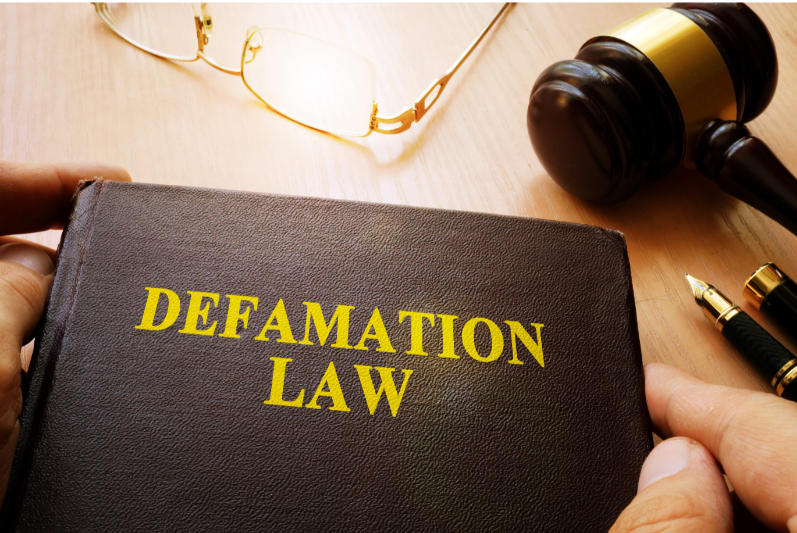
What is Defamation?
Defamation is a statement made either verbally, called “slander,” or in writing, called “libel,” injuring a person’s reputation.
Tort Law
Defamation is under the scope of tort law, meaning “a civil wrong.” It can result in damages but is not considered a criminal act. Therefore, unless an actual crime is involved, it rarely results in jail time.
Prima Facie
If you are someone pursuing a defamation case, certain conditions must be met initially. These are the following:
- A false statement purporting to be fact was made.
- The false information was communicated to a third person.
- There was at least negligence on the part of the person making the statement.
- There were damages or harm caused to the person’s reputation.

Truth
Truth is an absolute defense in defamation cases. Therefore, if you know that what was communicated was true or accurate and not falsehood, it will be tough to prove a defamation case.
Opinion Vs. Defamation
There is a difference between an opinion and defamation.
An opinion is a statement based only on one’s belief, attitude, or judgment and is not necessarily a fact. It is subjective and, therefore, can be challenged. Most of the time, what we say is merely our opinion.
Defamation, on the other hand, and as stated previously, is an intentional false communication that harms someone’s reputation or character.
Negligence
If you make a statement to a third person without verifying or determining its truthfulness, this is considered the negligence element in defamation suits.
Reckless Disregard
If you make a statement to a third person but have serious doubts about the accuracy or falsehood and say it anyway, it may be construed as defamatory. This is especially true if the statement you made harmed someone’s reputation. This is considered the reckless disregard for truth element in defamation suits. Simply put, you negligently did not verify its veracity and did not care whether it was true. You communicated it, anyway.
Defamation Per Se (or Libel Per Se or Slander Per Se)
Defamation Per Se is a doctrine that states certain defamatory statements are so damaging that the plaintiff is automatically assumed to have suffered harm due to the false statements.
Statements that are considered defamation per se are:
- Statements that allege a crime has been committed.
- Statements imputing misconduct in one’s profession or business.
- Statements ascribing to one’s sexual misconduct or unchastity.
- Statements that allege someone has a contagious or communicable disease.
If defamation per se is proven, the plaintiff can recover for general damages, special damages, nominal damages, and punitive damages.
Gossip, Rumors, Hearsay

It is believed that it is human nature to gossip, spread rumors, and believe in hearsay. Some are more inclined or have a heightened interest in such, others, not so. However, as much as it is human to do such things, we have to be careful about what we talk about, who we talk about, and whether or not what we repeat is true or not. False information can ruin a person’s life. We do not want to be part of that. Let us, instead, be the solution to a problem and not its cause.
Remember, “Only a lowlife would find joy in destroying other people’s lives through defamation of character.”
Don’t be that LOWLIFE!